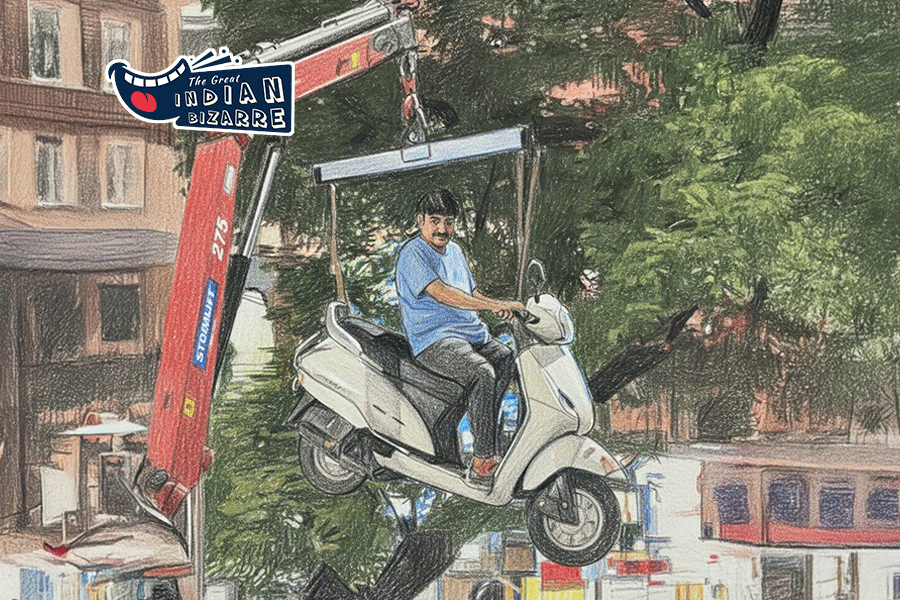PROfile
 |
Neemrana is a famous name in the destination tourism business. And the designer store in Delhi’s Khan Market builds on that reputation for ethnic chic. Peep inside The Neemrana Shop and you are sure to be hooked. Lush, crinkled silk skirts, sequined kurtas and must-have potlis (those little cloth purses) stand in the middle of the shop. An assortment of little somethings — butter knives, bottle openers, cake servers — beckon you from the glass shelves. Ceramic figurines vie for attention even as ultra soft pashmina shawls lie in wait for you to run your fingers over them.
 |
The Neemrana Shop started out a decade ago as a pet project of art historian Aman Nath and Frenchman Francis Wacziarg — co-owners of Neemrana ‘non-hotel’ Hotels. Non-hotel in the tagline alluding to the fact that the duo wanted Neemrana Hotels to look and feel more like the extension of a person’s home. They unveiled the shop when they realised that guests at the hotels actually wanted to walk away with the bedcovers.
 |
“That’s how we came up with the idea of the shop. It’s about sharing good taste and therefore we never looked at it as a money-spinner. It’s also an effort to make sure that people who make good things find a market,” says Nath, famous for restoring the 15th century Neemrana Fort Palace that once belonged to a chieftain, Nimola Deo.
 |
You catch Wacziarg on a sultry summer afternoon scanning the new additions to the shop — forks and butter-knives made from bone and fixed with stone handles. “You might wonder how The Neemrana Shop is different from other lifestyle stores. For one, you will see everything Indian in this store. Nothing is of Chinese, Indonesian or some other Asian origin,” says Wacziarg as he picks out paintings from the Gondi tribals of Madhya Pradesh.
The shop is a window to the Neemrana world of vintage hotels. And literally so. A plasma screen hangs on a wall and images of Neemrana hotels flash by. Fourteen of them are scattered around the country.
The first Neemrana Shop opened its doors in Delhi in Qutub Colonnade, the fashionable address owned by designer Bina Ramani. Since then it has changed a few locations before finding its current home in upscale Khan Market. While the flagship store continues to lure guests in Neemrana Fort Palace, it emerges in different variations — as counters, nooks and corners — in other Neemrana hotels.
Trends
 |
The Neemrana Shop sets its own trends. “The brand equity has been built around the Neemrana Fort Palace. So the emphasis is on Indian heritage,” points out Wacziarg who first came to India as a tourist over 30 years ago, and returned to stay on.
 |
Everything is sourced from within the country. For instance, the bone, horn and glass products come from Firozabad where they say ‘people breathe glass rather than air’. “We pick up things on our travels. The lacquered wood candle-stands are from south India, the wooden boxes and kilims from Kashmir and painted bone boxes from Jodhpur. These are not things that you will get to see in a crafts museum. They are traditional items with a contemporary touch,” says Wacziarg.
Young, upcoming designers’ collections are also stocked in the shop, but they are not given complete carte blanche. “There is a ‘selection committee’ at work, which has Aman Nath and I besides other staff members who are asked to give their feedback on designs that come in. It’s a very informal gathering really,” says Wacziarg.
To keep the ensembles up-to-date, they are changed not only from season to season, but several times within the same season.
PROduct
 |
If Wacziarg vows the shop has ‘everything and nothing’, his claim is backed by the laden shelves. The shopping experience here is a delight. You can pick up jewellery encrusted with semi-precious stones as well as candle-stands, vases, porcelain tableware, tea-sets and leather-bound albums.
There are even bottles of lemon marmalade made in the hills of Kumaon by the group just as there are attractively packaged packets of tea. “The tea is from the estate of the Munnar property,” notes Wacziarg.
While the general perception is that The Neemrana Shop prices its wares steeply, a cursory look around will set the record straight. Prices begin at an affordable Rs 150. A statue that’s in fact a ceramic mask resting on a wooden stand comes within Rs 500 while a kurti is priced within Rs 2,000 (plus taxes though). The most expensive things that you can buy here are pashmina shawls that have been worked upon intricately with Kashmiri sozni needlework. Expect to pay upto Rs 50,000.
Adds Wacziarg: “We are competitively priced. After all we do not want the products to sit on the shop-shelves.”











